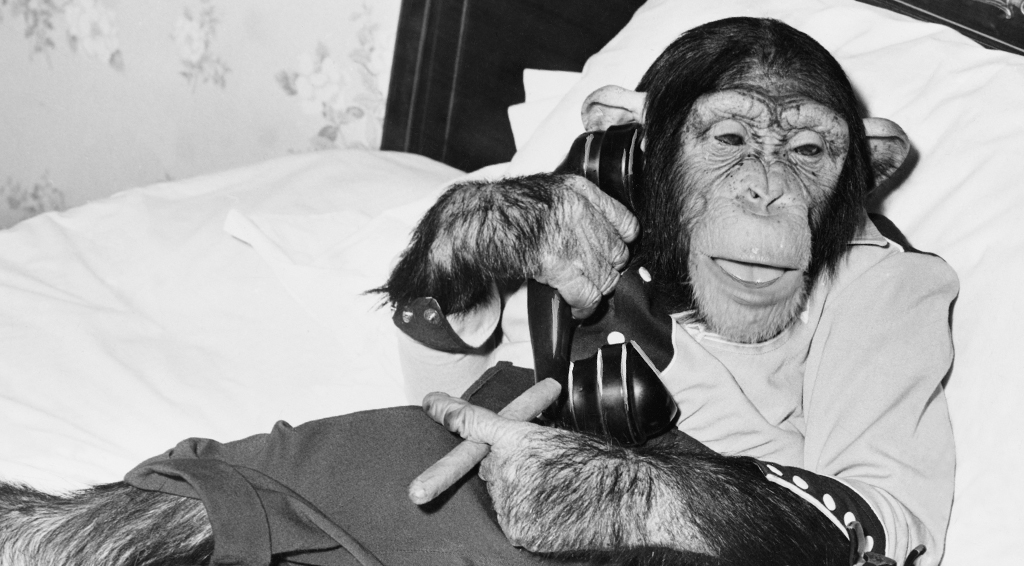There’s conventional wisdom brewing on the Internet lately that Facebook is killing comedy, that their new algorithms are making it difficult if not impossible for comedy brands to put their work in front of potential audiences without having to pay Facebook a hefty fee for the eyeballs. People say this is putting a major squeeze on comedians and comedy brands.
I’m talking about this Twitter rant from Matt Klinman, his followup interview in Splitsider, and this exhaustive article from The Ringer by Alison Herman and Victor Luckerson.
Klinman and The Ringer writers make good points about how Facebook is crowding its way into our lives as the new Internet middle man, and I don’t doubt Facebook is closing off some avenues of profit for big brands. And even though there’s no question Facebook is a juggernaut on the Internet, is it the only way to find audiences? Is posting stuff on Facebook the only way to generate views, build a brand and make money?
No, it’s not.
A determined comedy writer or performer is like life in Jurassic Park: it finds a way.
For years, I’ve been encouraging people to use the “fire on all cylinders” approach to comedy, and it’s never been a better strategy than right now.
The Facebook funnel is certainly making life more difficult for the big comedy brands who have millions of dollars in expenses. But the single scrappy writer or comedian can easily slip through the cracks and get a foothold in any number of different ways.
I absolutely recommend that anyone serious about comedy be on Facebook and post what they’re doing. Even if you don’t think a lot of people are going to see it. For now, you pretty much need to be there.
And you should be on Twitter, Instagram, and anywhere else you can, too.
But is that all?
No. Be everywhere.
Even if people don’t go to websites anymore, you should still have a website and you should encourage people to sign up for your email list. You should make it as easy as possible for interested fans to find and follow your work. This is how people who hire comedy writers will find you and learn about you. And this is a great way to build a following.
Mike Sacks built a list like this and used it to propel sales of his comedy books on Amazon. After self-publishing his first parody movie novelization, Stinker Lets Loose!, and then got approached by a production company who loved the book and put together a star-studded celebrity audiobook. His sales have been so good he plans to write more parody books. His immediate followup was Randy: The Full and Complete Unedited Biography and Memoir of the Amazing Life and Times of Randy S.!
There are other ways, too.
Connor O’Malley didn’t need Facebook when he wrote funny comments on youtube videos and amazon products. It was these hilarious posts, along with his low-traffic youtube videos—not Facebook—that led to his being hired as a writer for Late Night with Seth Meyers.
And is the Internet the only medium there is?
If you’re serious about making money in comedy, you need to fire on all cylinders.
Do standup. It’s still possible to get noticed by an agent or manager if you’re on stage in New York or LA.
Do improv. If you’re in Chicago, New York or LA, people who make recommendations for SNL could be watching.
You can put on a play or a one-person show to put the spotlight on your characters or your acting. Elllie Kemper did a one-woman show through the UCB and got cast on The Office, which led to her landing the lead in Unbreakable Kimmy Schmidt. Chris Kelly did a one-man show, also through the UCB, which led to his being hired as a writer and eventually head writer of SNL.
If you don’t live in New York, Chicago or LA, you can offer to make TV commercials for local businesses wherever you live and put them on youtube, taking a page from Rhett and Link’s career. Check out some of their hilarious ads.
If you’re in college, get involved with your school’s humor publication. People who do this are approached by The Onion for their fellowship program, historically one of the most sure-fire ways to get hired as an Onion staff writer.
If you’re in college and your school doesn’t have a humor publication, start one. It’s this kind of gumption that makes people in the industry take notice. It’s also a good way to make money. I did this with a couple of friends at the UW-Madison in 1988, launching The Onion.
Do a comic strip for your local newspaper or college newspaper. Before The Onion, I did this and got lucky with “Jim’s Journal,” which became popular enough to make me a comfortable living once I started selling T-shirts, self-syndicating to other newspapers, and self-publishing book collections and selling them in local bookstores.
You can create street art, like fake posters, which is how Carol Kolb (now a successful TV writer) got noticed and hired to write for The Onion.
Where can you produce comedy where people might see it? Don’t let Facebook or the Internet box your thinking.
Comedy finds a way.

